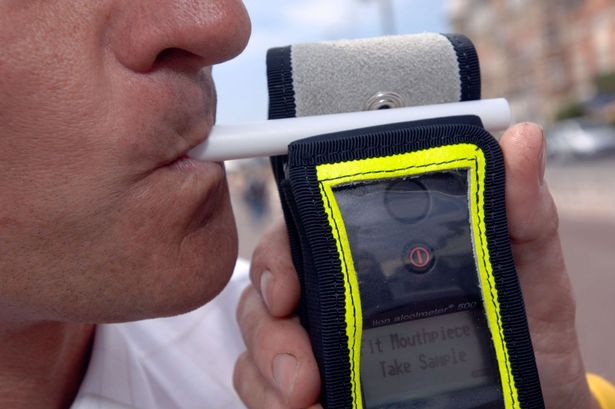Following an internal investigation, figures show that over a five year period almost one million Garda breath tests recorded on the Pulse system did not happen.
Over five years, 1,200 devices were in use across 108 Garda Districts with no central recording process.
Nationwide between November 2011 and October 2016 , the MBRS recorded 1,058,157 breath tests – almost half of the alleged 1,996,365 breath tests that were lodged on the Pulse system.
The breath test controversy was brought to light after The Irish Times published an article earlier this year outlining how the Medical Bureau of Road Safety (MBRS) noted that the number of tests being recorded on Pulse did not correlate with the amount of disposable mouth pieces being ordered.
The discrepancies were so large in Cork and Kerry Garda stations, that a nationwide investigation was launched.
“Some officers provided guestimates”
An internal Garda investigation has been launched to investigate the inaccuracies, with assistant Garda commissioner Michael Sullivan expected to publish a report including recommendations for improvement next month.
The Sunday Times report that the investigation involved interviewing Gardaí across the country in an attempt to determine why breath tests had inflated by 88% between November 2011 and October 2016.
Made-up figures and mistakes made during administration and data input were blamed for the major discrepancies.
A source with knowledge of the inquiry told journalist John Mooney that there are a number of reasons to explain how certain divisions appear to have “exaggerated their results”.
“Some officers provided guestimates, some made up statistics while others provided information on how many cars they stopped as opposed to the number of drivers they breathalysed.”
“A matter of grave disappointment”
Speaking following the discovery of the major discrepancy, Garda Commissioner Nóirín O’Sullivan said that the findings were a “grave disappointment” and says corrective action is to follow. She also promised to be completely open about the matter with the public, in order to “sustain public trust.”
“What we’ve found thus far is totally unacceptable and not in keeping with the standards of a modern and professional police service,” she said.
“The Policing Authority and Garda management are ad idem that this is a matter of individual and collective ethical behaviour and not one of occasional systems failure.
“It is a matter of grave disappointment that this has apparently been happening for so long, unchallenged.
“Every single member of the organisation must recognise that their individual actions, in all areas of policing, reflects on the organisation as a whole and impacts on the trust between ourselves and the communities we serve.
“However, as evidenced this week, I am determined that where we identify problems in the organisation, we admit these issues publicly, take whatever corrective action is necessary and ensure they do not recur. That is what I expect of the organisation and what is demanded of us by the community.
“In addition to correcting these issues, we must share that information, no matter how negative it is, not just with the Authority, but also with the public. Only through that openness can we sustain public trust,” concluded the Garda Commissioner.
Gardaí also say that data recorded on Pulse for 2016 is accurate based on the data available to AGS from the Medical Bureau for Road Safety.
Tags:







